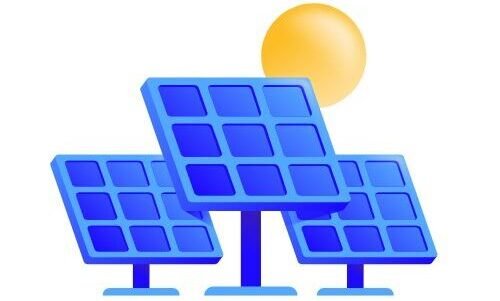Introduction
Solar energy has emerged as a viable alternative to conventional energy sources globally. In Pakistan, where energy demands are escalating and power shortages are frequent, solar panels present an appealing solution. However, like any technology, they come with their own set of advantages and disadvantages. This essay delves into the current benefits and challenges of adopting solar panels in Pakistan as of 2024.
Advantages
- Reduction in Energy Bills
One of the most immediate benefits of installing solar panels is the significant reduction in energy bills. Solar panels convert sunlight into electricity, which can be used to power homes and businesses. By generating their own electricity, users can drastically cut down on their reliance on the national grid, thus lowering their monthly energy expenses. - Abundance of Solar Resources
Pakistan enjoys a high solar irradiance, with many regions receiving ample sunshine throughout the year. This makes solar energy a particularly effective and reliable resource. The average solar radiation in Pakistan ranges from 5 to 6 kWh/m²/day, which is conducive for effective solar panel performance and energy generation. - Energy Independence
Solar panels offer a pathway to greater energy independence. By investing in solar technology, Pakistanis can reduce their reliance on imported fuels and mitigate the impact of fluctuations in energy prices. This shift not only enhances national energy security but also reduces vulnerability to geopolitical tensions that affect energy supply. - Environmental Benefits
Solar energy is a clean and renewable resource. Unlike fossil fuels, it does not produce harmful emissions or pollutants. Utilizing solar panels contributes to a reduction in greenhouse gas emissions and helps combat climate change. As Pakistan is particularly susceptible to climate-related issues, such as extreme temperatures and water scarcity, adopting clean energy solutions is crucial for sustainable development. - Job Creation and Economic Growth
The expansion of the solar energy sector has the potential to create jobs and stimulate economic growth. The installation, maintenance, and manufacturing of solar panels require skilled labor, which can lead to employment opportunities. Additionally, as the solar industry grows, it can foster technological advancements and innovation, further driving economic development. - Low Maintenance Costs
Once installed, solar panels require minimal maintenance. They generally have a long lifespan, often exceeding 25 years, and only need periodic cleaning to maintain efficiency. This low maintenance requirement makes solar panels a cost-effective option in the long term, despite the initial investment.
Disadvantages

- High Initial Cost
The primary barrier to adopting solar panels is the high initial cost of installation. While prices have decreased over the years, purchasing and installing a solar system still requires a significant investment. For many households and small businesses in Pakistan, this upfront cost can be prohibitive, despite the long-term savings. - Intermittent Energy Supply
Solar energy production is dependent on sunlight, which is not available during the night and can be intermittent due to weather conditions. This variability can lead to inconsistent power supply, particularly in regions with frequent cloud cover or during the winter months. As a result, solar energy systems may need to be supplemented with other power sources or energy storage solutions to ensure a reliable supply. - Limited Grid Infrastructure
In Pakistan, the national grid infrastructure is often outdated and unreliable. The integration of solar energy into the existing grid can be challenging due to infrastructure limitations. Many areas may experience difficulties in connecting solar systems to the grid or face issues with grid stability, impacting the overall effectiveness of solar energy adoption. - Space Requirements
Solar panels require ample space for installation, which can be a limiting factor for urban areas or small properties. To generate sufficient power, a large number of panels may be needed, which may not be feasible for all locations. This spatial requirement can be a significant drawback in densely populated or space-constrained environments. - Technical and Maintenance Challenges
Although solar panels generally require low maintenance, technical issues can still arise. Problems with the inverter, wiring, or panel degradation can affect system performance. In Pakistan, where technical expertise and support may be limited in certain areas, addressing these issues can be challenging and costly. - Environmental Impact of Manufacturing
The production of solar panels involves the extraction of raw materials and energy-intensive manufacturing processes. This can have environmental impacts, including habitat destruction and pollution. While solar panels themselves are environmentally friendly, their production needs to be managed carefully to minimize negative effects.
Conclusion
In conclusion, solar panels offer a range of advantages for Pakistan, including cost savings, environmental benefits, and enhanced energy independence. However, the high initial costs, intermittent energy supply, and challenges related to grid infrastructure and space requirements pose significant obstacles. As Pakistan continues to explore and invest in solar energy, addressing these challenges through technological advancements, financial incentives, and improved infrastructure will be crucial for maximizing the benefits of solar power. By balancing these factors, Pakistan can harness the full potential of solar energy and move towards a more sustainable and resilient energy future.

